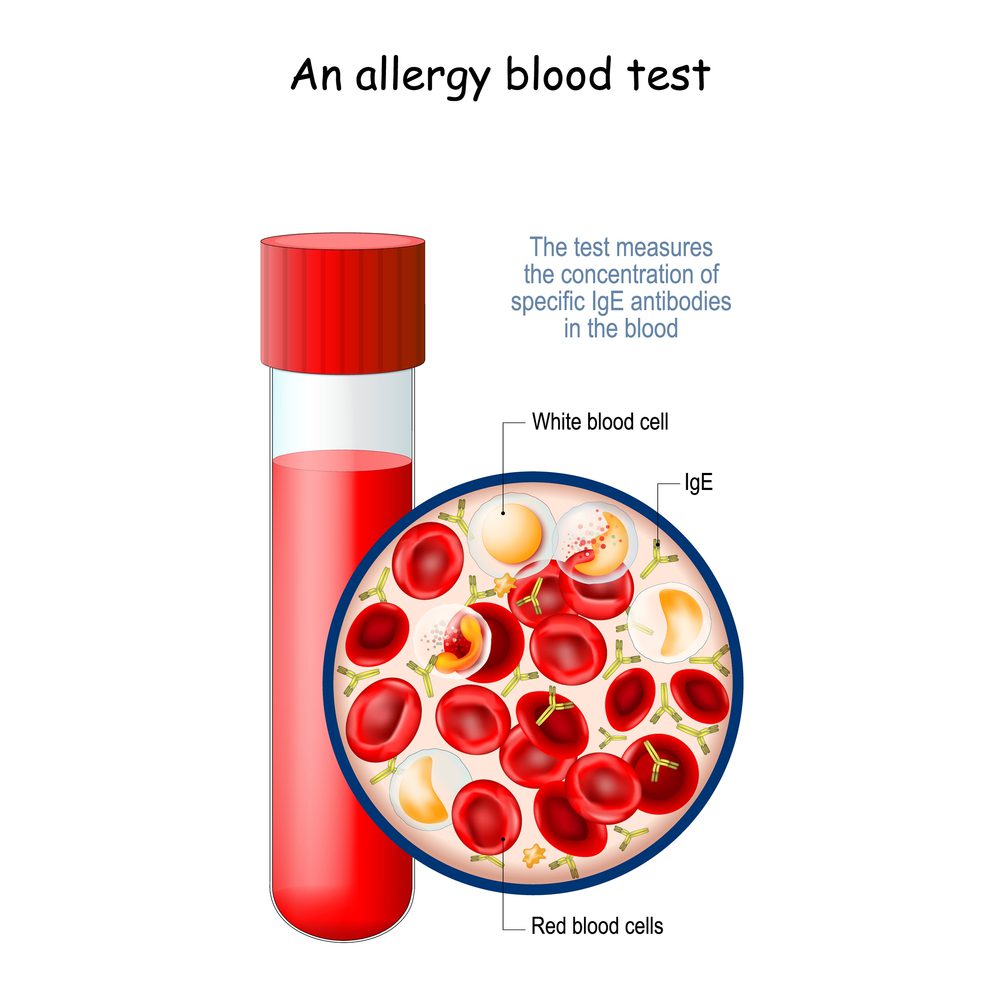What is an Immunoglobulin E (IgE) (TOTAL IGE) Blood Test?
Immunoglobulin E (IgE), a component found in your blood, is measured during an allergy blood test. Your body produces the antibody IgE. Therefore, you might have higher levels of IgE in your blood than usual if you have allergies.
A frequent, chronic disorder involving your immune system is allergies. Your immune system produces antibodies to defend against bacteria, viruses, and other pathogens that can harm you. Your immune system misinterprets one or more harmless items, such as pollen or peanuts, as a threat when you have allergies. Your immune system produces IgE antibodies to combat the “threat.” What triggers your allergy symptoms is this.
What Is This Test Used For?
- A total IgE test is done to determine how many IgE antibodies are present in your blood.
- A specific IgE test assesses the quantity of IgE produced by your body in response to a single allergen. Each allergen that might be the source of your allergies is subjected to a separate test.

Why Do I Need A Blood Allergy Test?
If you experience allergy symptoms, your doctor may ask for allergy testing. These consist of:
- runny nose
- Sneezing
- Watery, itchy eyes
- Hives (itchy, raised red patches on the skin)
- Diarrhea
- Vomiting
- Breathlessness
- Coughing
- Wheezing
If you are unable to have allergy skin testing, your doctor may decide to request an allergy blood test. A skin test includes injecting or applying allergens directly to your skin. Skin testing might not be an option for you if you:
- Suffer from certain skin issues
- Use medications that might have an impact on test outcomes.
- Are probably going to react severely to the allergens used in skin testing
Young children may require allergy blood tests in some circumstances since skin testing may be too uncomfortable for them.
What Do The Results Suggest?
If your total IgE test result is high, you may have an allergy of some sort. A total IgE test, however, does not reveal what you are allergic to or the potential severity of your allergy.
A high specific IgE test result indicates that you might be allergic to that allergy. However, the severity of your allergy cannot be predicted by the amount of IgE detected.
Your healthcare practitioner may suggest a course of therapy or send you to an allergy expert if the findings of either type of test indicate that you may have an allergy. Your allergy triggers and the severity of your symptoms will determine your treatment strategy.
Choose Awami Lab, Gujrat, To Provide Excellent Lab Services.
If you experience any of the symptoms mentioned above, we strongly advise that you contact Awami Lab in Gujrat for the best lab services. Awami Lab provides premium medical treatment and healthcare in Gujrat. We offer the best lab services for allergy testing. Professional technologists and phlebotomists on our staff carry out each test in a clean, sterile environment. As soon as the sample is sent to the lab for analysis, we make sure to give authentic test reports.



